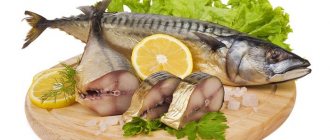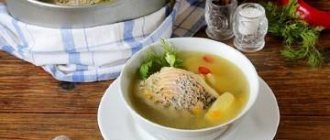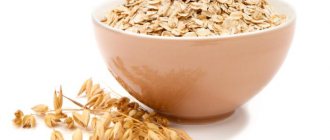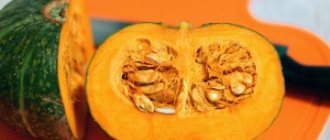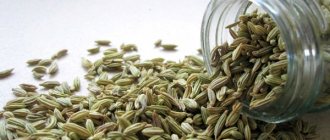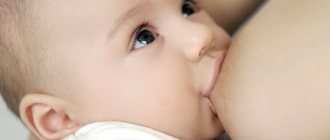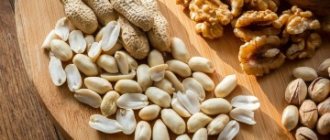A small child, during the period of breastfeeding, along with the milk he feeds, receives the same harmful and beneficial microelements as his mother.
Therefore, only high-quality food products should be present in the mother’s diet, which raises a completely logical question: is it possible for a nursing mother to smoked fish? This is a favorite delicacy of many, because the product has a special taste, but the method of preparing it confuses not only mothers with breastfeeding, but also other people who care about health.
About smoked fish in the diet of a nursing mother
The positive effects of eating fish are not in dispute. But sometimes you may come across the opinion that fish is a powerful allergen that is not recommended for consumption by young mothers. Preference should be given to white river fish; it is not allergenic for the baby. Herbivorous fish may be infected with parasites. Thus, predators remain - pike, pike perch, perch. Sea white varieties, rich in iodine and animal protein, are an ideal option for both mother and baby.
So, is it possible to have smoked fish during breastfeeding? Smoked products, in principle, cannot be called healthy. But the positive aspects of consuming fish as such are impressive. Therefore, a significant part of pediatricians are unanimous in their opinion that it is possible to eat smoked fish during breastfeeding, but strictly following the norms, very rarely, not from the first months and if the woman tried it while pregnant. At the same time, it is important that the girl does not feel discomfort in any form (heartburn, vomiting, diarrhea). During lactation, such side effects may increase.
Smoked fish is a dangerous product in the diet of a nursing mother
Is it allowed to give to children?
Smoked fish can be included in a child’s diet no earlier than the age of five . Only by this age does the normal functioning of the gastrointestinal tract develop. The child’s immunity by this age is also almost completely formed. If a child suffers from frequent eating disorders or is allergic to various foods, then smoked fish can only be included in his diet from the age of seven.
Benefits for the child
This food product contains many vitamins:
- vitamin D is the best remedy for strengthening bones, nails and teeth, and it is also what the child’s body needs to prevent rickets;
- vitamins B, E, A, C - help preserve vision, maintain youth and beauty of the skin, help strengthen the nervous system.
We must not forget about the benefits of omega acids, which are responsible for the child’s attention, intelligence and immunity. In addition, it is fish protein that is completely absorbed by the child’s body.
The benefits and harms of smoked fish for breastfeeding
Eating smoked fish during breastfeeding brings undeniable benefits to a woman’s body. Fish, as mentioned above, contains easily digestible protein, which promotes rapid recovery of the female body, while blocking excess uric and lactic acids. Omega acids, found inside the muscle mass of an aquatic animal, help restore hormonal levels, strengthen the cardiovascular system, immunity, and also have a beneficial effect on brain function. A breastfed baby receives vitamins D, B, E, A, and C along with mother's milk. Omega acids also contribute to the development of intelligence and immunity in the baby.
Possible harm from eating smoked fish:
- If the manufacturer resorted to using liquid smoke when smoking, then the benefit from this type of product will be zero.
- Smoked products have a high salt content, which reduces milk production and is a possible root cause of edema.
- Hot smoked products contain a high amount of carcinogens.
- For a child, such consumption is fraught with diathesis.
To avoid the acquisition of harmful factors, you should take a reasonable approach to consuming all kinds of smoked meats.
Eating smoked fish can cause allergies in your baby
From what month can you introduce smoked fish into your diet?
Can a nursing mother eat smoked fish in the first months of giving birth? No, this is fraught with negative consequences for the baby. When the child is healthy and does not suffer from colic or diathesis, it is permissible to introduce the product after three months from the baby’s birth. If the child is weakened and susceptible to any external influences, it is better to wait until 5 months to introduce the product.
How to properly introduce it into the diet?
At the initial stage, you should try such a product carefully, in tiny portions, and not earlier than permitted by pediatricians. While breastfeeding, you can initially eat 50 grams of smoked fish. It is best to perform this kind of experiment in the first half of the day and immediately after feeding. Before subsequent feeding, the product is absorbed in the woman’s body, which indicates that harmful components will appear in breast milk in minimal doses. During the first 24 hours after feeding, it is important to carefully monitor your baby's reaction. It is allowed to introduce fish into the further menu only when the child behaves as usual.
It is important to know: only cold smoked products are allowed for up to a year. Hot smoked products are allowed only after a year.
Start introducing smoked fish into your diet with 50 grams
Choosing the right fish
While a mother is breastfeeding, her body is the resource provider for milk production. Among the products there are many that are poorly compatible with breastfeeding and can cause unwanted reactions in the baby’s body. A nursing mother can eat fish. But with reservations.
What are the benefits of fish for breastfeeding?
Pediatricians and breastfeeding specialists agree: fish is good for breastfeeding. This is explained by the high content of valuable substances with easy digestibility of protein.
When breastfeeding, it is important for a woman to eat properly so that she has enough to produce milk. An infant has nowhere to get minerals, vitamins, proteins, and fats for growth except from the mother.
Therefore, the composition of breast milk is more or less constant and depends on the mother’s nutrition only in certain parameters. For example, in terms of the composition and amount of vitamins.
Everything useful that the nurse did not eat will still end up in the milk, but from her body: the bones will “share” calcium and phosphorus, the muscles will share protein, etc.
Therefore, nursing mothers need to make their diet rich and thoughtful. Then no one will be left out.
What is fish rich in, why should nursing mothers not exclude it from their diet:
- Mineral salts. Calcium, fluorine and phosphorus are useful for bone growth, magnesium and sulfur are useful for building nervous tissue, iron, iodine, etc. help proper hematopoiesis.
- Vitamins. Particularly rich in vitamins A, D and K, PP. But in the first place are B vitamins. They help the gastrointestinal tract of mother and child to work correctly, and the newborn especially needs this.
- Fish oil during breastfeeding is a rich source of fatty acids that control lipid metabolism, synthesize vitamin F, are responsible for the elasticity of blood vessels and protect against cancer. It can be taken both in natural form and in the form of dietary supplements in capsules.
- It is rich in enzymes that help digest food. And its protein contains all the essential amino acids, and it is absorbed by the body almost completely.
Precautionary measures
Although fish is useful for a young mother, during breastfeeding it is worth adhering to a number of rules to protect yourself and the child:
- For a nursing mother, it is important where the fish lived. It is better if it is sea or oceanic, because the vitamin and mineral composition is richer than freshwater, and there is more valuable fat.
- If it is verified that the child is not allergic to different varieties, the mother can eat almost any. Although it happens that a baby has no reaction to an inhabitant of the seas that grew up in the wild, but it may appear to one that is artificially raised. As a rule, in such cases, an allergy occurs to dyes that are added to the food to brighten the color of the fillet. It is better to protect a newborn from these chemical additives.
- When breastfeeding, salt the fish well and cook longer to ensure that possible parasites are neutralized. You may not notice them and eat them. The least number of worms is found in sea water, and among freshwater, you should prefer river water. Fish that lived in stagnant water (pond, lake) are more infected.
What kind of fish can a nursing mother eat?
When breastfeeding, you have to weigh the pros and cons when choosing foods.
Permitted and prohibited varieties
While breastfeeding, you can and should eat different types of fish, but some of them come with reservations.
Red fish quite often ends up in markets and stores from farms. It has been proven that in terms of the content of useful substances, artificially grown individuals cannot compete with those caught in the open sea. If the product is not commercial, bypass it for now.
The river fish is quite suitable for a nursing mother, the same noble pike perch. But there are limitations here too. For example, bottom-dwelling catfish feed on carrion, everything that is on the bottom. Therefore, it is better to refrain from buying catfish during lactation.
Commercial salmon, chum salmon and other types of noble red fish (provided the child does not have an allergic reaction) are very useful to add to the diet. Especially if it was fished in cold waters: the content of healthy fats is an order of magnitude higher. You can detect artificial colors in farmed fish: they slightly color the water or oil in which the fish is cooked.
River trout with white tender meat is quite suitable for a nursing mother's menu. True, this freshwater species is readily bred by fish farms.
Varieties with low fat content - hake, pollock, cod - are suppliers of protein, and it is less likely to cause reactions in the baby and is digested by the body much easier and faster than animal meat.
The baby grows very quickly and doubles its weight by six months, which means that there must be more protein in the mother’s diet than usual, otherwise the body will take it from the woman’s muscles.
The low calorie content of these types of fish will help mom quickly return to her previous shape.
The champion in protein content is tuna. But hold off on it for now: it accumulates toxic mercury. The larger the individual, the more harm it causes. This also applies to tuna's relative, mackerel, although its fat is good for the heart and blood vessels.
Salty
Eating herring is good for you, everyone knows that. Due to the lack of heat treatment, valuable fats and fat-soluble vitamins are preserved as much as possible. It would seem that with such benefits, doctors should specifically prescribe herring during breastfeeding. But is this so clear during the Civil War?
Excess salt retains water in tissues. Although nursing mothers should drink more, fluid turnover is important in this process, not its retention in the cells. With excess salt, all liquids, including milk, become saltier. Not only is this level of salt harmful to an infant, it can also stagnate in the ducts.
Salted fish can also be dangerous due to parasites: helminth eggs die if the technological requirements for the duration of salting and the concentration of the solution are fully observed. But most people prefer lightly salted fish. This poses a potential danger of infection and subsequent intoxication. Therefore, despite all the benefits of herring, it is not recommended for a nursing mother to eat salted fish.
Smoked
When choosing fish while breastfeeding, you should avoid those that have gone through the smoking apparatus. First, smoked fish is salted and then treated with smoke for a long time.
It does not undergo heat treatment. Smoke contains combustion products that are far from healthy, some are carcinogenic.
The carcass, like a sponge, absorbs them, so nutritionists do not recommend smoked meats to anyone, not just young mothers.
Canned
Canned fish made according to Soviet technological requirements should not contain any preservatives, except for a small amount of salt.
Long-term storage is ensured by the very high processing temperature of the jars and strict compliance with the requirements for the preparation of raw materials. Nursing mothers can eat such fish without expecting a catch.
This is if there is no doubt about the quality of the products of specific modern industries. True, canned food no longer contains as many vitamins, but fish is still rich in mineral salts and protein.
Fried
Fried fish is tasty, aromatic and very appetizing. True, the benefits are less than steamed or boiled. Fatty acids are destroyed at very high temperatures, and carcinogens are formed in the crust.
But if you don’t get carried away with the crust being too golden and alternate between different cooking methods, then why not.
Dried
As is the case with salted fish, it is better not to eat dried fish during breastfeeding. The reasons are the same: parasite eggs may be viable, excess salt makes it difficult for milk to leave the ducts. In addition, the benefits of such food are questionable.
How to cook fish for a nursing mother
Pediatricians advise to refrain from including fish in the menu of a nursing mother in the first month. This is a period when a woman carefully tries new foods for her baby, gradually expanding her diet. But with potential allergens (and fish is one of them), it is better to wait 1-2 months.
In the future, it is important to choose gentle cooking methods. For the first six months, avoid frying; this can undermine the normal functioning of your stomach and will bring minimal benefits. It is healthier to bake, steam or boil fish.
By the way, broth made from bones, heads and fins contains more minerals than broth cooked from fish meat. Of course, not everyone is ready to eat boiled fish because of its specific smell.
But when baked and properly seasoned, the fish will not only retain its vitamin and mineral wealth to the maximum, but will also surprise you with a pleasant taste and wonderful aroma.
Doctor Komarovsky's opinion:
— the goal of all advice is to make the life of a nursing mother comfortable. Whatever you ate before pregnancy and childbirth, eat after. There are only two “buts” about fish. First, hold off on seafood to begin with, as these are strong allergens. Long-lived large fish such as tuna and swordfish accumulate mercury. You don't need this!
Source: https://ProGrudnoe.ru/pitanie/kakuyu-rybu-mozhno-kormyashhej-mame.html
How to choose the right smoked fish during breastfeeding?
When choosing smoked fish, it is important to consider several rules:
- For a nursing mother, fish smoked at home according to accepted standards is beneficial.
- Preference should be given to river varieties with white meat and moderate fat content.
- The color of smoked fish should have a uniform yellow tint; bright or, on the contrary, dull color are indicators of deviation from the norm.
- It is important to choose the carcass wisely. The head of a spoiled fish is cut off.
- The fish pulp has a high density, without visible traces. Sometimes traces may remain from the grate on which the product was smoked.
- The aroma of smoking is heard at the first touch.
- A nursing mother can only eat cold smoked fish.
Choose your smoked fish carefully
Harm
The main danger of this food product for a nursing woman and her child lies in its far from perfect composition.
- Many manufacturers use liquid smoke when preparing it, which does not bring any benefit to the body.
- Smoked foods, including fish, always contain too much salt. It impairs lactation and provokes the appearance of edema.
- Hot smoked products contain too many carcinogens.
- If the fish has undergone insufficient heat treatment, helminth larvae may remain in it.
- The child may develop severe diathesis.
To avoid all these dangers, it is necessary to eat smoked fish competently and wisely.
Homemade fish smoking - recipes
Carcasses must be gutted before smoking. The head and scales remain, they prevent soot from getting inside. The carcass is salted. 80 grams of salt dissolve in 1 liter of water. For 1 kg of fish, 1.5 liters of this brine are prepared. Salting lasts at least 12 hours. 500 grams of wood chips are placed at the bottom of the smokehouse. Carcasses one layer wide are placed on the grill. Lay out at intervals to allow smoke to penetrate. The smoking process takes up to 50 minutes depending on the size of the carcass. Readiness is determined by the dark brown tone of the pulp. This product can be stored for no more than 3 days in the refrigerator.
The healthiest smoked fish - home smoked
Any mother should remember that the feeding process should be enjoyable for both, in which case the maximum benefit comes from it. You shouldn’t deny yourself your favorite foods, you can simply limit their consumption.
Recommendations for mothers who plan to eat smoked fish
The only thing, when planning to eat her favorite delicacy, she should still adhere to some recommendations:
- Smoked fish for a nursing mother can be beneficial if it is made according to certain rules and prepared at home.
- To do this, you must definitely choose only fresh fish that has not been brought from afar and has not been frozen for a long time.
- If sea or river fish has been frozen, it should be thawed in salt water to preserve all the beneficial elements.
- The process of smoking fish should be carried out on wood from deciduous trees that do not contain resinous substances: apple, maple, oak, cherry, hornbeam and alder.
- If you have any doubts about the quality of this type of fish, you should categorically refuse to consume it, as it can lead to poisoning.
If you answered in the affirmative to the question whether a nursing mother can smoked fish and took into account all our recommendations, after eating it it is advisable to monitor the baby for at least a day. After all, such fish can cause a rash and redness of the skin, vomiting, malaise and diarrhea, bloating and increased gas formation, abdominal pain, fever and anxiety in a child.
Fish is one of the healthiest foods for humans, as it contains a huge amount of nutrients, vitamins and microelements. Fish does not lose its value during breastfeeding and is also very useful. Many mothers often wonder what kind of fish can be consumed so that it does not harm the child? This question is very important, but you should also know in what form it can be consumed so that the baby does not have an allergic reaction.
Types of preparation
- Red fish is a storehouse of Omega 3 fatty acids, but also a strong allergen. Therefore, when breastfeeding, it can be eaten in small quantities. It should also be noted that before eating red fish, you need to make sure that the child is accustomed to safer types of this product.
- Breastfeeding mothers are strongly advised not to eat salted fish. The salt it contains leads to fluid retention in the mother's body and can cause deterioration in kidney function and the appearance of edema. Also, salted fish does not undergo heat treatment, which creates a risk of infection with parasites.
- Due to the cooking method, smoked fish loses most of its beneficial substances and acquires harmful carcinogens. If you eat smoked fish for a long time, there is a risk of developing chronic diseases in the mother and also in the child. And sometimes they lead to cancer. Also, short heat treatment can lead to incomplete destruction of parasites and infection of humans. This is why it is not recommended to eat smoked fish during lactation.
- Dried fish is often prepared with salt, which not only leads to kidney problems, but can also change the taste of the milk, making it unpleasant for the baby. Thus, the child may simply refuse to eat, which should under no circumstances be allowed.
- River fish is very useful for a nursing woman if it is steamed, oven-baked or boiled. You should not use oil, as it significantly increases the fat content of the dish.
- Fried fish dishes are harmful in any case, since during their preparation all the beneficial substances are destroyed, and carcinogens appear from the fried oil.
- Dried fish is prohibited during lactation for the same reasons as salted fish.
- Raw fish should never be present in the diet of a nursing woman, as it increases the risk of poisoning and parasite infection.
- The most valuable product will be either fresh or chilled fish, but in frozen fish almost half of the nutrients are destroyed.
If it is possible to purchase only a frozen carcass, it should be properly defrosted.
To do this, place the fish in lightly salted water. Thanks to such gentle defrosting, beneficial substances will remain in the product.
